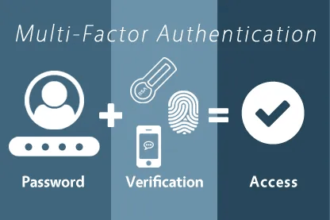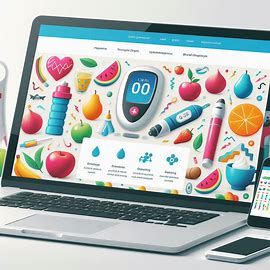Diabetes is a condition that affects millions of people worldwide, yet many still find themselves navigating through confusion and misinformation. Understanding this complex disease is crucial for those diagnosed with it and their loved ones. Whether you’re newly diagnosed or seeking to deepen your knowledge, we’re here to shed light on the different types of diabetes, their causes, symptoms, and essential management strategies. Living with diabetes doesn’t have to be overwhelming; https://diabetes.magento-multisite.test/ by gaining insight into this condition, you can take charge of your health journey. Let’s explore how understanding diabetes can empower you toward better health outcomes.
Understanding Diabetes
Diabetes is a chronic condition that occurs when the body struggles to manage blood sugar levels effectively. Glucose, derived from the food we eat, serves as our primary energy source. However, for those with diabetes, this process becomes disrupted.
There are two main types: Type 1 and Type 2. Type 1 arises when the immune system attacks insulin-producing cells in the pancreas. This type typically develops during childhood or adolescence but can occur at any age.
Type 2 diabetes is more common and often linked to lifestyle factors such as obesity and inactivity. In this case, the body either becomes resistant to insulin or doesn’t produce enough of it.
Understanding these distinctions helps individuals grasp their unique situations better while fostering informed discussions with healthcare providers about treatment options and management strategies. Knowledge truly empowers those living with this condition to navigate its complexities daily.
Types of Diabetes
Diabetes is mainly classified into three types: Type 1, Type 2, and gestational diabetes.
Type 1 diabetes typically develops in childhood or adolescence. It’s an autoimmune condition where the body attacks insulin-producing cells in the pancreas. People with this type must rely on daily insulin injections to manage their blood sugar levels.
Type 2 diabetes is more common and often occurs due to lifestyle factors. The body either becomes resistant to insulin or doesn’t produce enough of it. This form usually develops later in life but is increasingly seen in younger populations due to rising obesity rates.
Gestational diabetes manifests during pregnancy and generally resolves after childbirth. However, it can increase the risk of developing Type 2 diabetes later on for both mother and child.
Understanding these types helps tailor appropriate management strategies for those affected by diabetes.
Causes and Risk Factors
Diabetes arises from a complex interplay of genetic and environmental factors. Family history plays a significant role. If close relatives have diabetes, your risk increases.
Lifestyle choices are also critical. Obesity is one of the primary contributors to type 2 diabetes. Excess body fat can lead to insulin resistance, making it harder for your body to manage blood sugar levels effectively.
Physical inactivity further amplifies this risk. Regular exercise helps maintain a healthy weight and improves insulin sensitivity.
Age is another factor; individuals over 45 are often at higher risk due to hormonal changes and decreased physical activity as they grow older.
Certain ethnic groups, including African Americans, Hispanics, and Native Americans, face increased susceptibility as well. Awareness of these causes can empower individuals in their prevention strategies against diabetes.
Symptoms and Diagnosis
Recognizing the symptoms of diabetes is crucial for early diagnosis. Common signs include increased thirst and frequent urination. You might notice blurred vision or experience fatigue that seems unshakeable.
Another indicator can be unexpected weight loss, particularly in type 1 diabetes. Some individuals may also find themselves dealing with slow-healing sores or frequent infections.
Diagnosis typically begins with a visit to your healthcare provider. They will conduct blood tests, such as fasting glucose levels or an A1C test, to measure your average blood sugar over time.
Being proactive about these symptoms can lead to timely intervention and better management. If you suspect any issues, don’t hesitate to seek medical advice; it’s always wise to prioritize health and well-being.
Treatment Options for Diabetes
When it comes to treating diabetes, there are several options tailored to individual needs. Medications play a crucial role in managing blood sugar levels. Oral medications can help your body use insulin more effectively or stimulate insulin production.
For some, insulin therapy is necessary. This involves injecting insulin daily to maintain healthy glucose levels. Understanding the different types of insulin and their actions is essential for effective management.
In addition to medication, continuous glucose monitors (CGMs) offer real-time feedback on blood sugar fluctuations, empowering patients with data-driven insights into their health.
Dietary changes also form an integral part of treatment. A balanced diet rich in whole grains, lean proteins, and plenty of fruits and vegetables can make a significant difference in managing diabetes.
Regular physical activity should not be overlooked either; exercise enhances overall well-being while aiding weight control and improving sensitivity to insulin.
The Importance of Managing Blood Sugar Levels
Managing blood sugar levels is crucial for anyone living with diabetes. When glucose levels fluctuate, it can lead to serious health complications over time.
Stable blood sugar helps maintain energy and mood stability. High or low levels can cause fatigue, irritability, and confusion.
Moreover, consistent management reduces the risk of long-term issues such as heart disease, kidney damage, and nerve problems. Keeping your numbers in check allows you to enjoy a healthier life overall.
Monitoring your blood sugar also empowers you to make informed dietary choices. Understanding how food affects your body enables better meal planning and helps avoid unwanted spikes or drops.
Regular check-ins with healthcare providers are essential too. They provide valuable insights into effective strategies for managing glucose effectively over time.
Lifestyle Changes for Managing Diabetes
Lifestyle changes play a pivotal role in managing diabetes effectively. Adopting a balanced diet is essential. Focus on whole foods like fruits, vegetables, lean proteins, and whole grains. These can help maintain stable blood sugar levels.
Regular physical activity is another crucial component. Aim for at least 150 minutes of moderate exercise each week. Activities such as walking, cycling, or swimming can enhance insulin sensitivity and boost overall health.
Monitoring blood sugar regularly empowers individuals to make informed decisions about their diet and activities. Keeping track helps identify patterns that may impact glucose levels.
Stress management techniques also matter significantly. Practices like yoga, meditation, or deep-breathing exercises can lower stress hormones that negatively affect blood sugar control.
Prioritizing sleep hygiene cannot be overlooked. Quality sleep supports metabolic health and improves mood stability throughout the day.
Tips for Living with Diabetes
Living with diabetes requires a bit of planning, but small adjustments can make a big difference. First, prioritize regular monitoring of your blood sugar levels. This helps you understand how food and activity affect your body.
Meal prep is essential. Having healthy snacks on hand reduces the temptation to grab something unhealthy when hunger strikes. Focus on whole foods like vegetables, lean proteins, and whole grains.
Stay active by incorporating physical activities into your routine. Even simple walks can improve insulin sensitivity and boost mood.
Don’t hesitate to reach out for support from family or friends. Sharing experiences can lighten the emotional load associated with diabetes management.
Educate yourself about diabetes through reliable sources. Knowledge empowers you to take charge of your health confidently and make informed decisions every day.
Support and Resources for Diabetics
Finding support is crucial for those living with diabetes. There are various resources available to help manage this condition effectively.
Online communities offer a space where individuals can share experiences, tips, and encouragement. Websites dedicated to diabetes also provide valuable information on nutrition, exercise, and self-management strategies.
Local organizations often host workshops and support groups. These gatherings create an opportunity for connection with others facing similar challenges. In-person interactions can enhance motivation and understanding.
Healthcare professionals play a vital role too. Regular check-ups and consultations with specialists ensure personalized care plans tailored to individual needs.
Educational materials like books, podcasts, and webinars further enrich knowledge about the condition. Staying informed empowers diabetics to take active control of their health journey.
Don’t forget about mobile apps designed specifically for diabetes management that track blood sugar levels or meal plans as well; they can be immensely helpful in daily routines.
Conclusion
Understanding diabetes is essential for those affected and their loved ones. This complex condition can significantly impact daily life, but with the right knowledge and tools, it is manageable.
Diabetes comes in different forms, primarily Type 1, Type 2, and gestational diabetes. Each type has unique characteristics but shares common challenges regarding blood sugar management.
Various factors contribute to the development of diabetes. Genetics plays a role alongside lifestyle choices such as diet and physical activity levels. Recognizing these risk factors can empower individuals to make informed decisions about their health.
Symptoms can sometimes be subtle or mistaken for other conditions. Common signs include increased thirst, frequent urination, fatigue, and blurred vision. Early diagnosis through regular check-ups is crucial for effective management.
Treatment options vary based on the type of diabetes one has. Medications may play an important role alongside insulin therapy when needed. Nutritional changes also support successful treatment plans.
Managing blood sugar levels effectively is vital in preventing complications associated with uncontrolled diabetes. Regular monitoring helps keep track of fluctuations and informs necessary adjustments in treatment or lifestyle choices.
Making specific lifestyle changes can improve overall well-being for those living with diabetes. Incorporating a balanced diet rich in whole foods while engaging in regular exercise creates a strong foundation for managing this condition successfully.
Living with diabetes requires ongoing education and adaptation to new routines that promote stability in blood sugar levels while maintaining quality of life. Support systems are invaluable during this journey; sharing experiences fosters resilience among peers facing similar struggles.
There’s an abundance of resources available today—from online communities to local support groups—providing information tailored specifically for diabetics at every stage of their journey toward better health outcomes.







